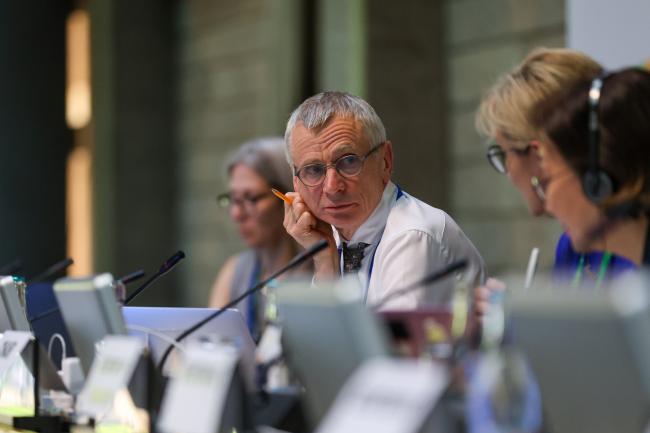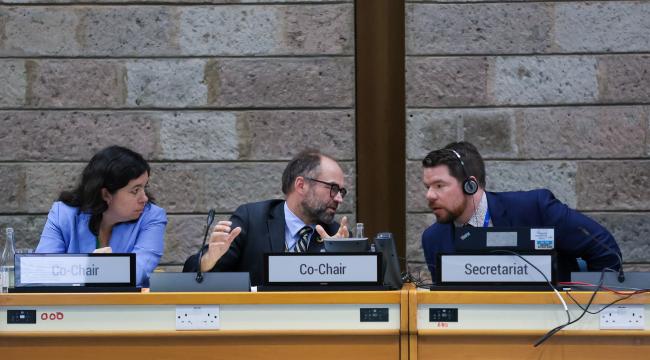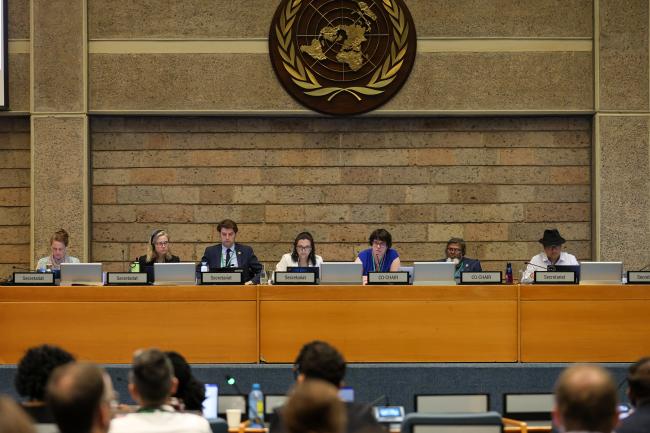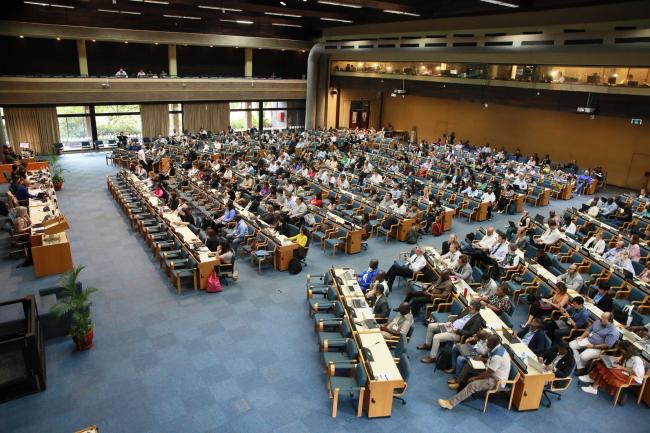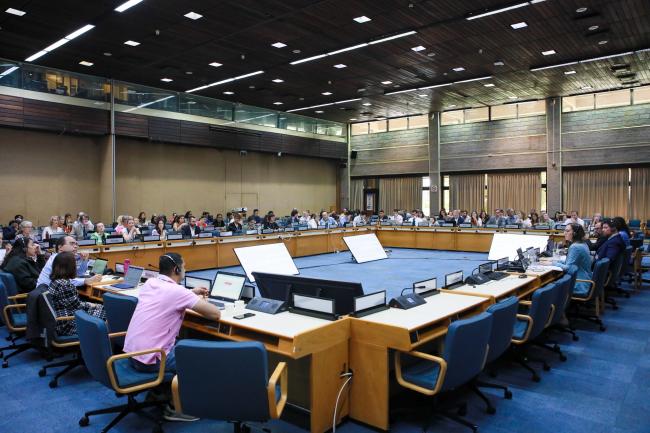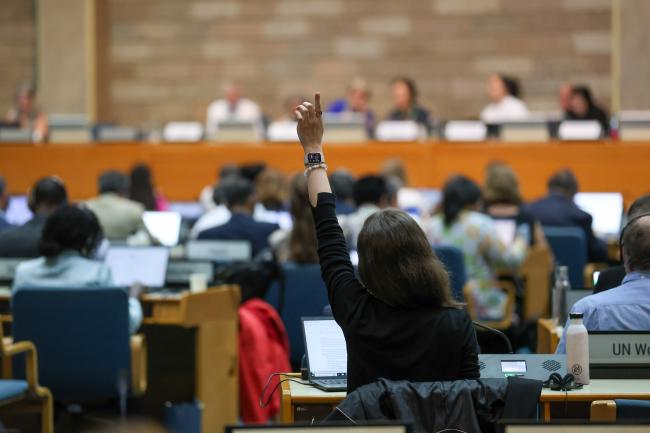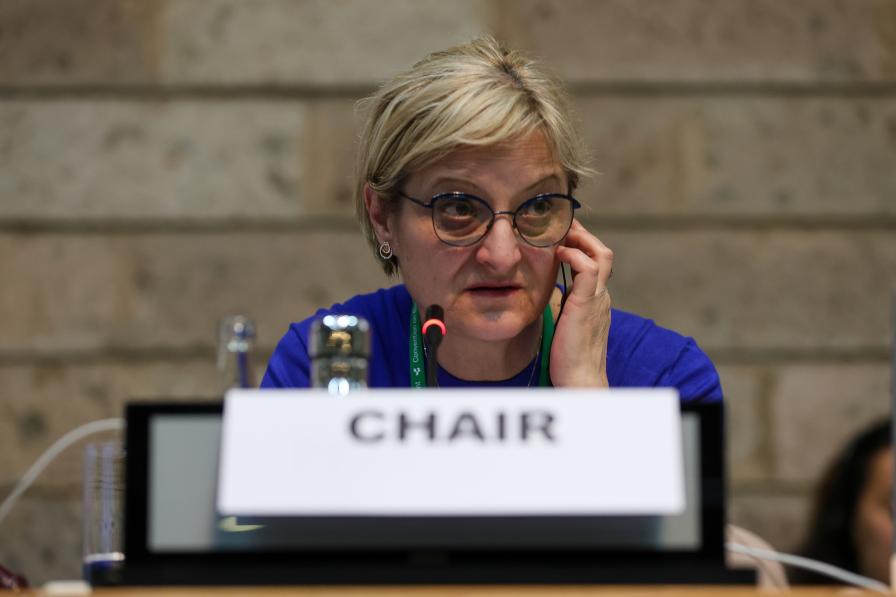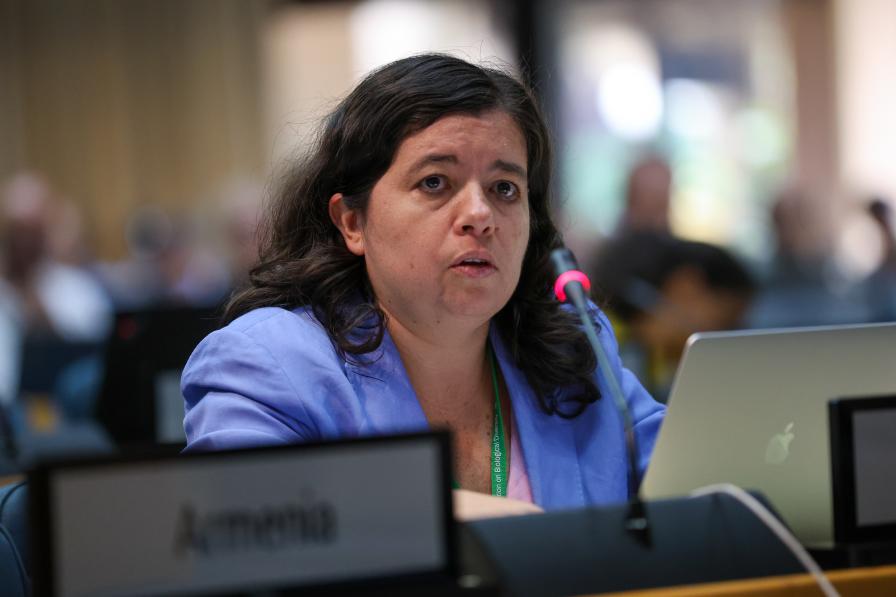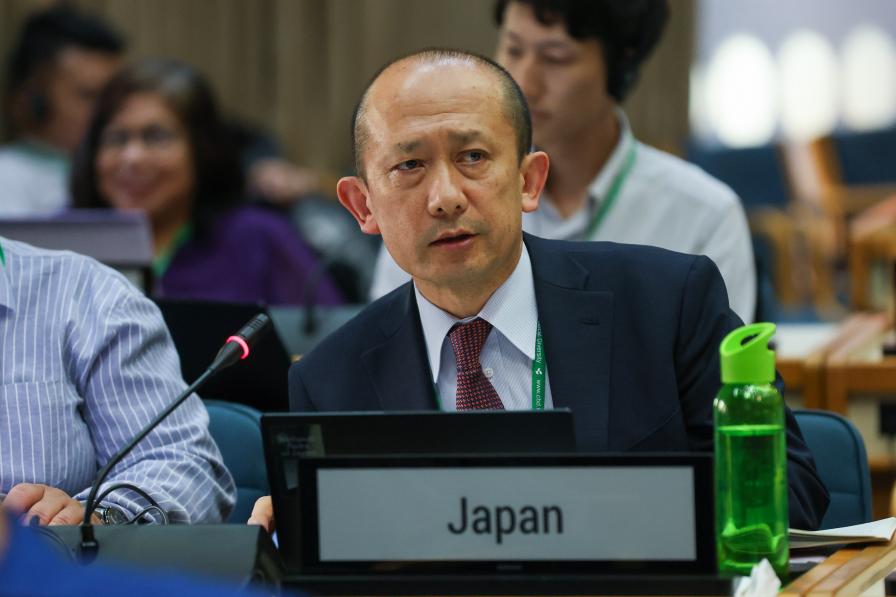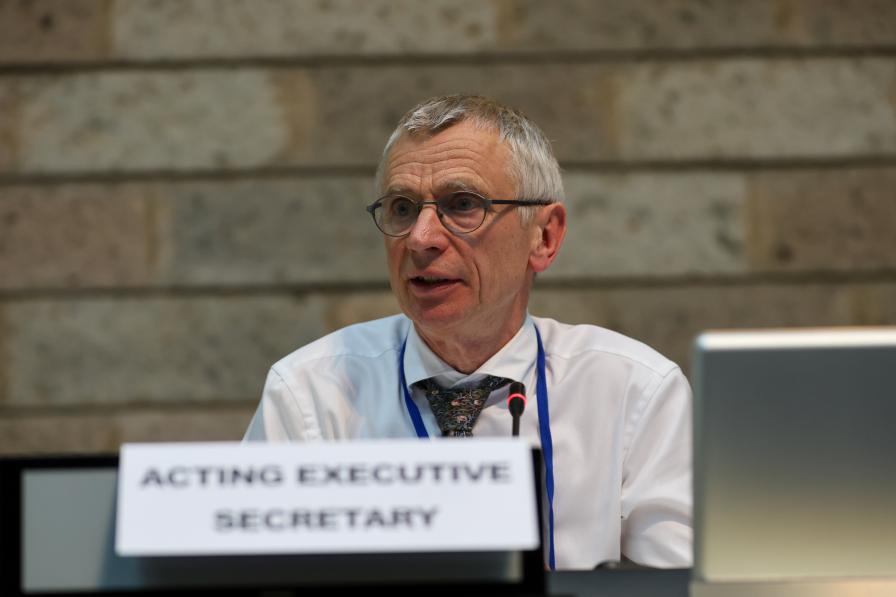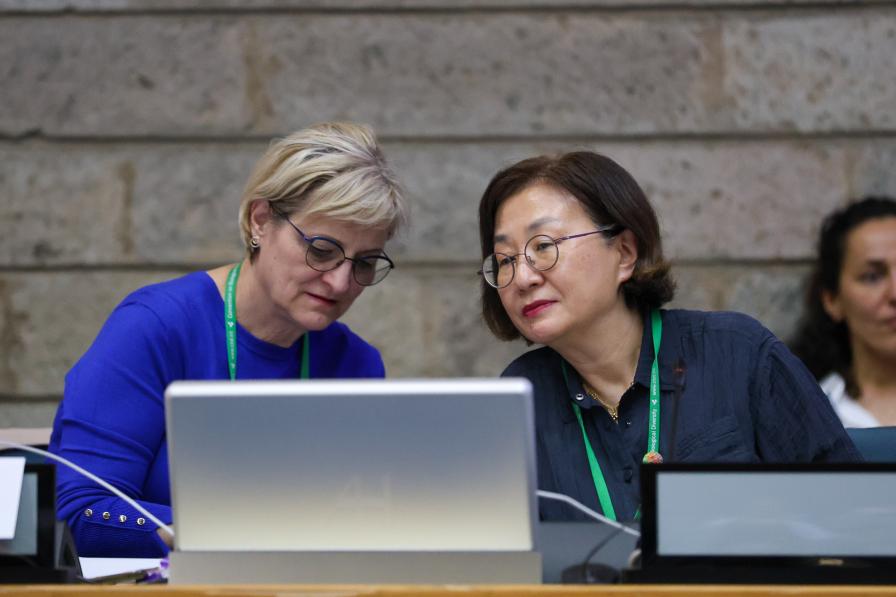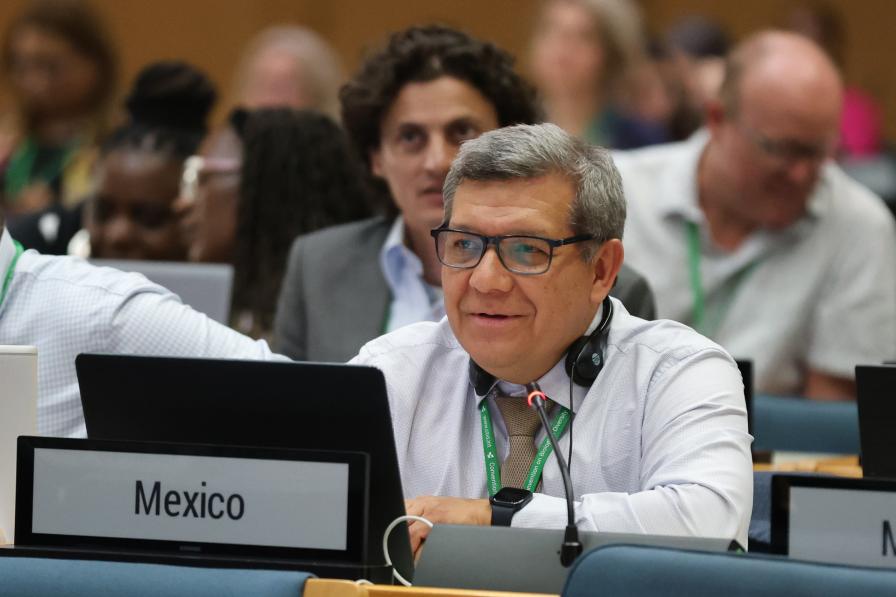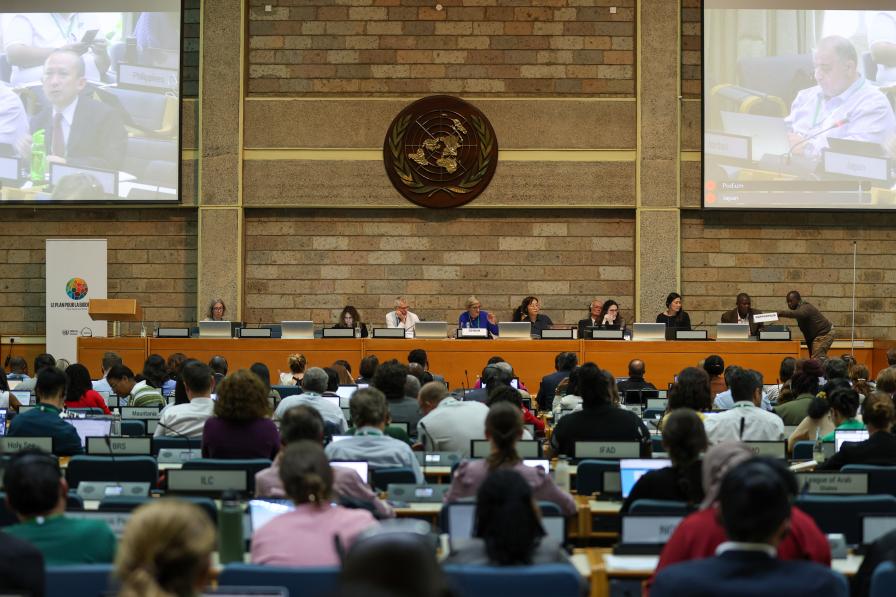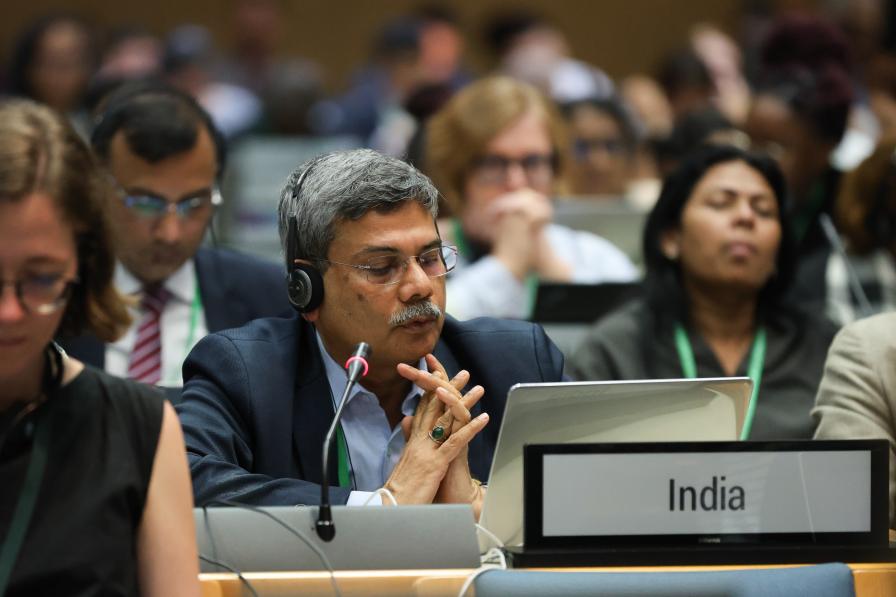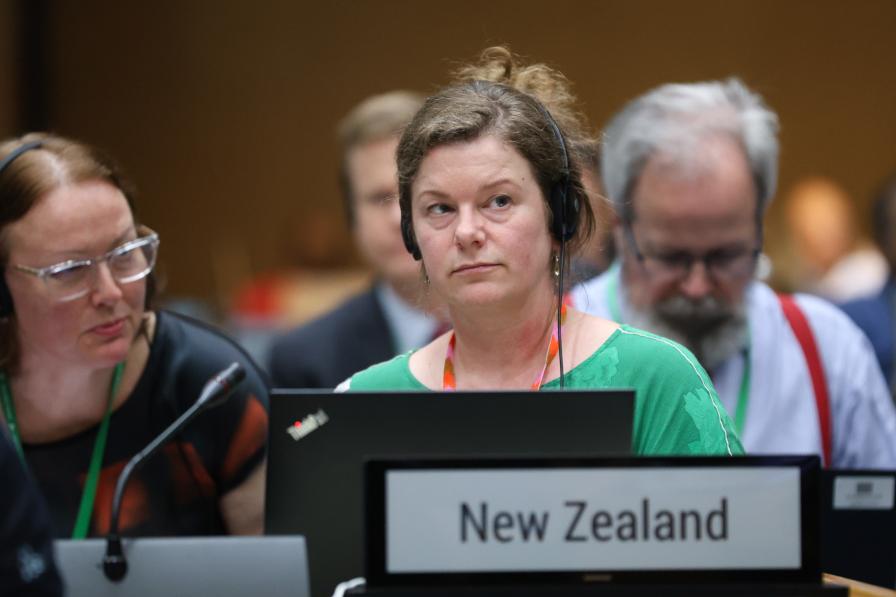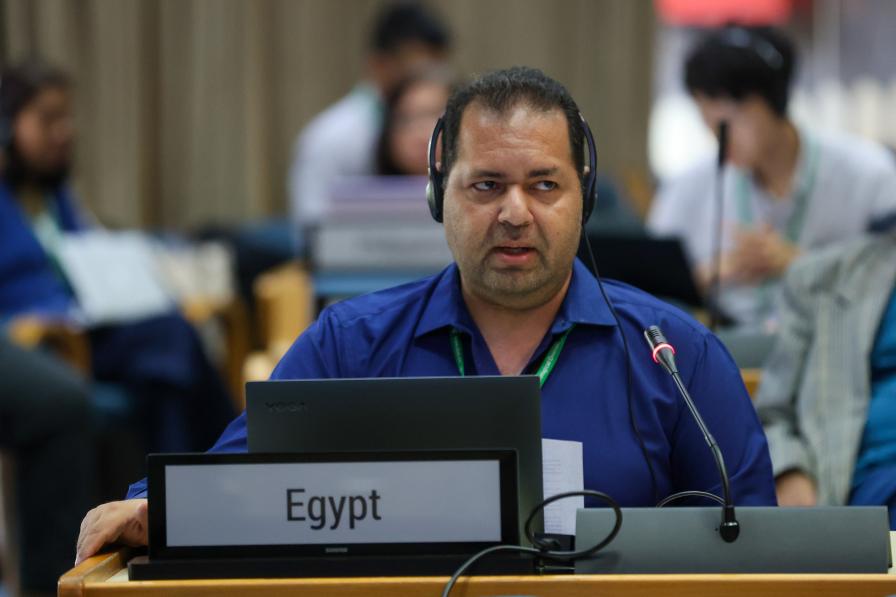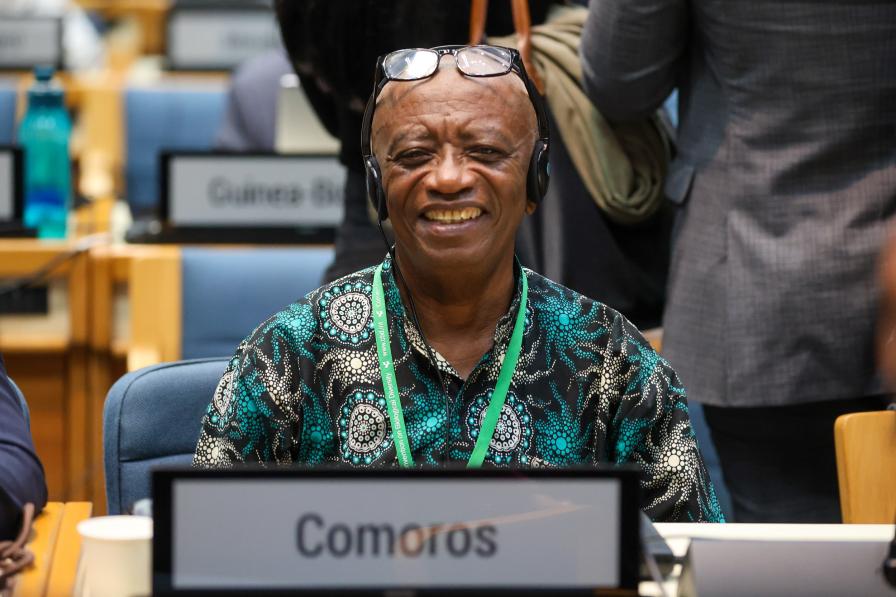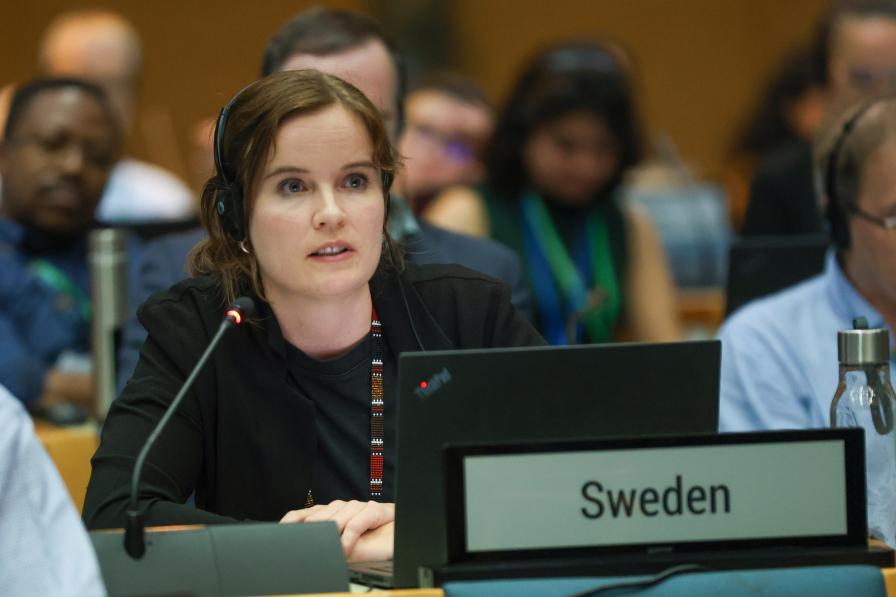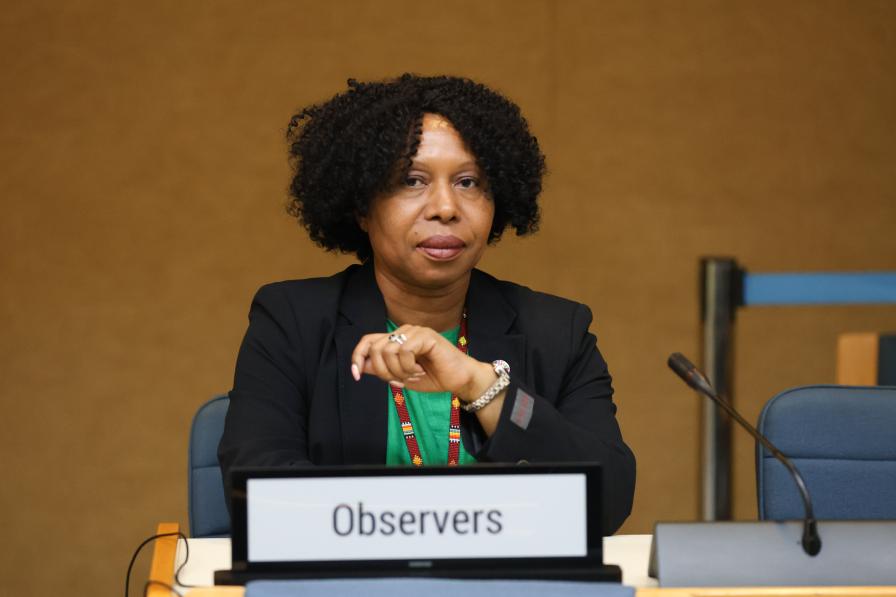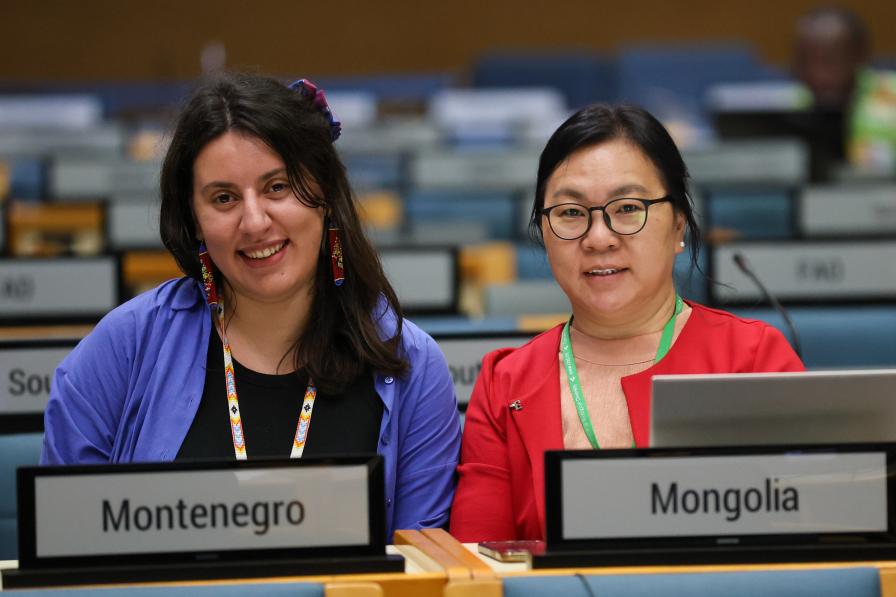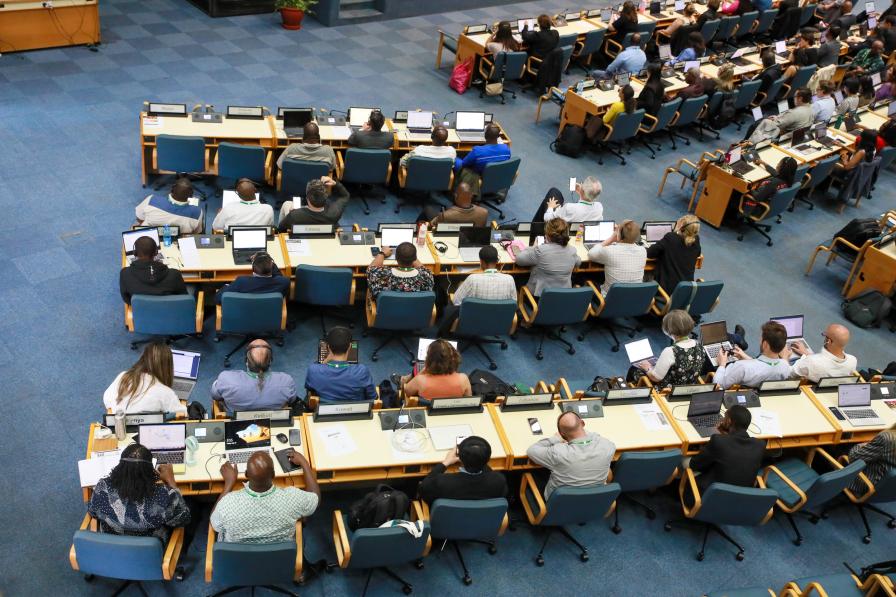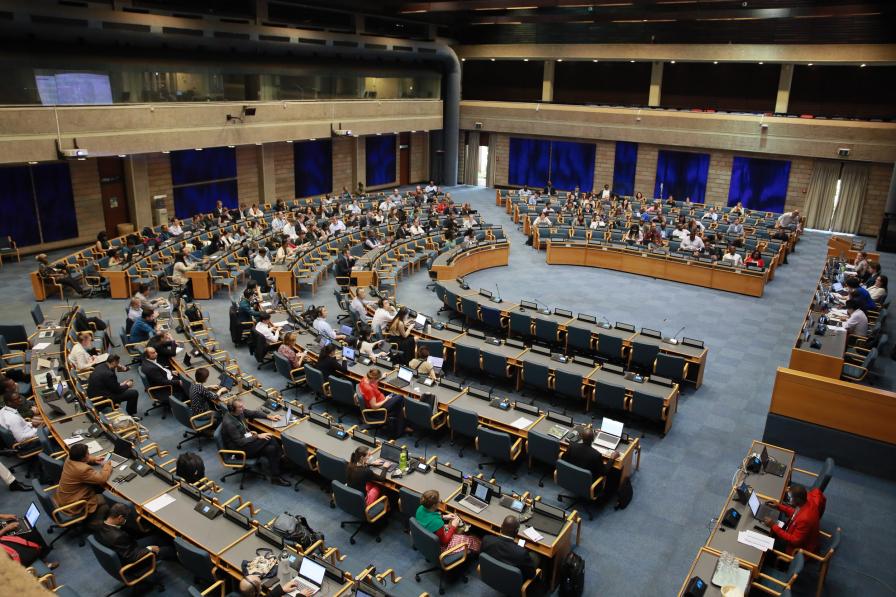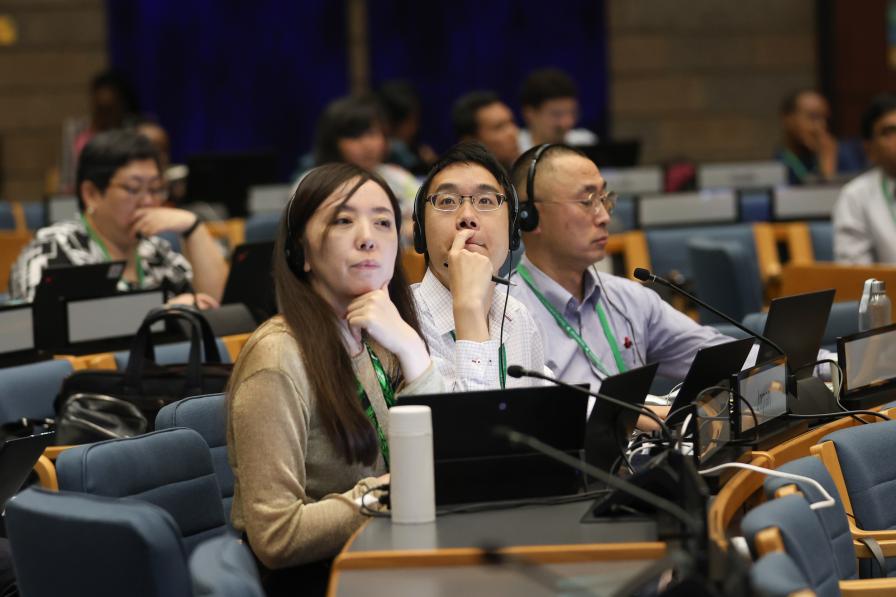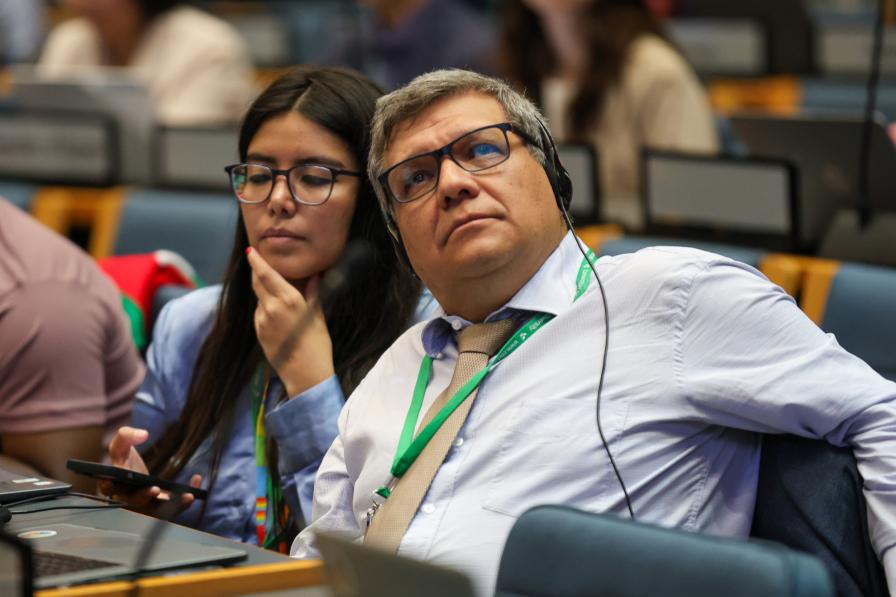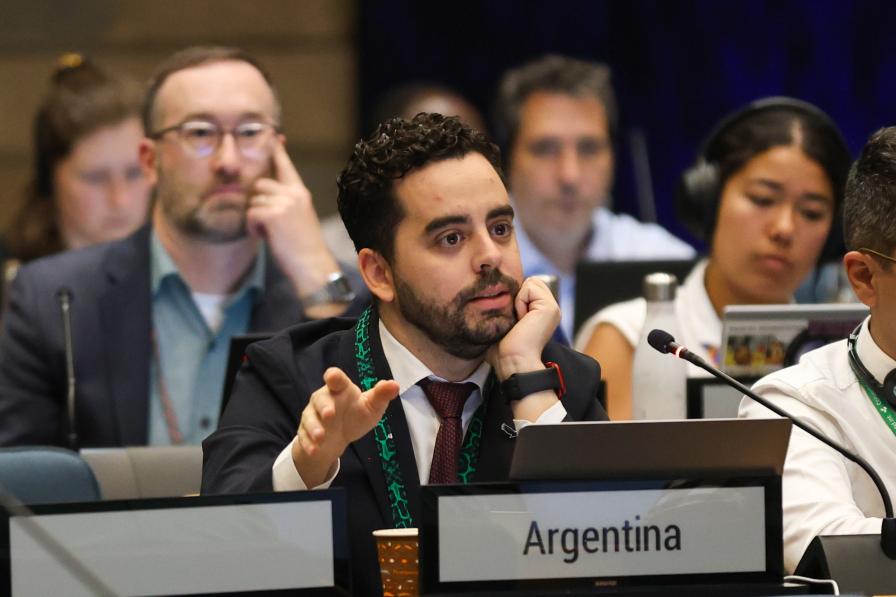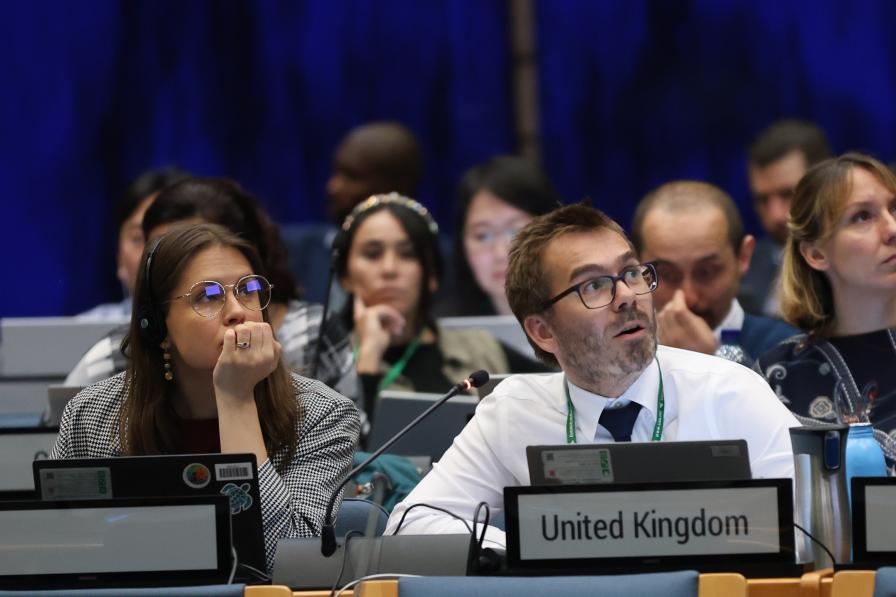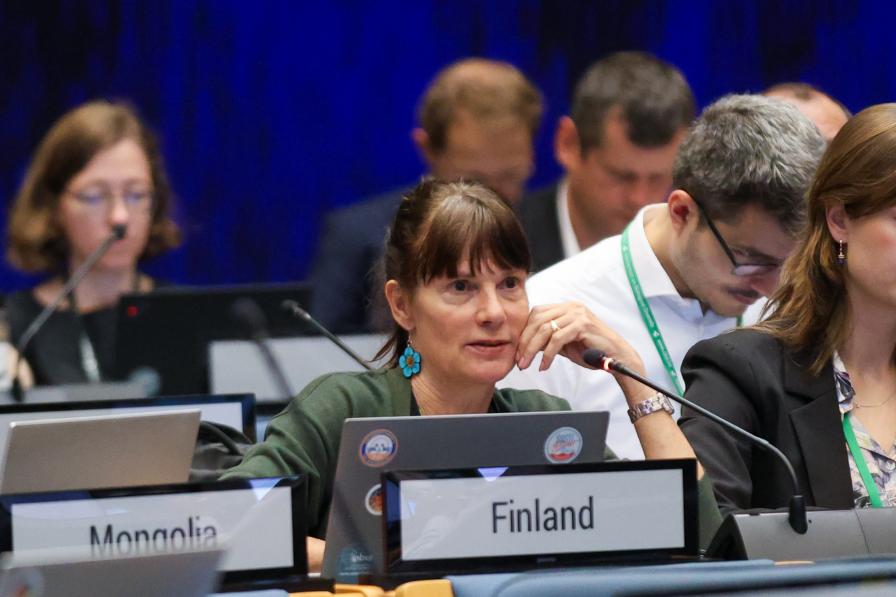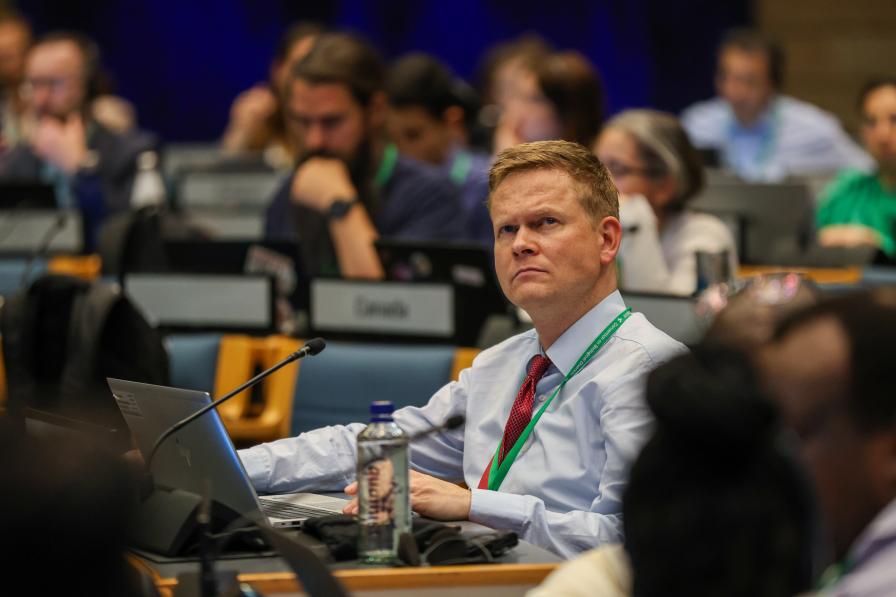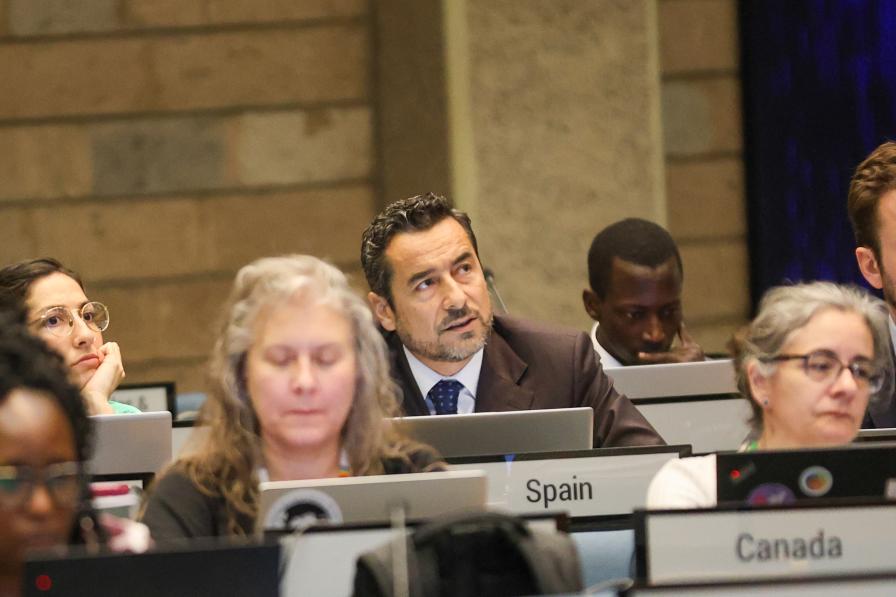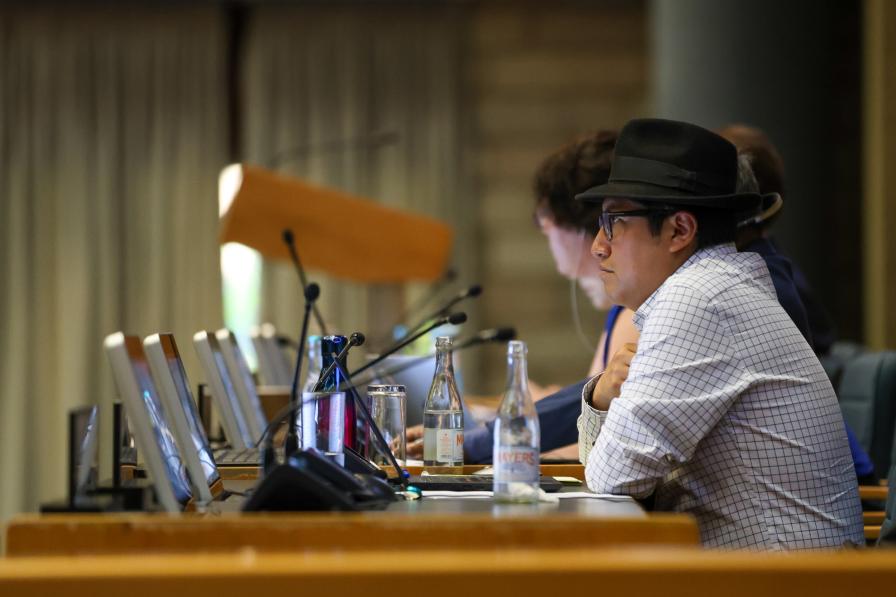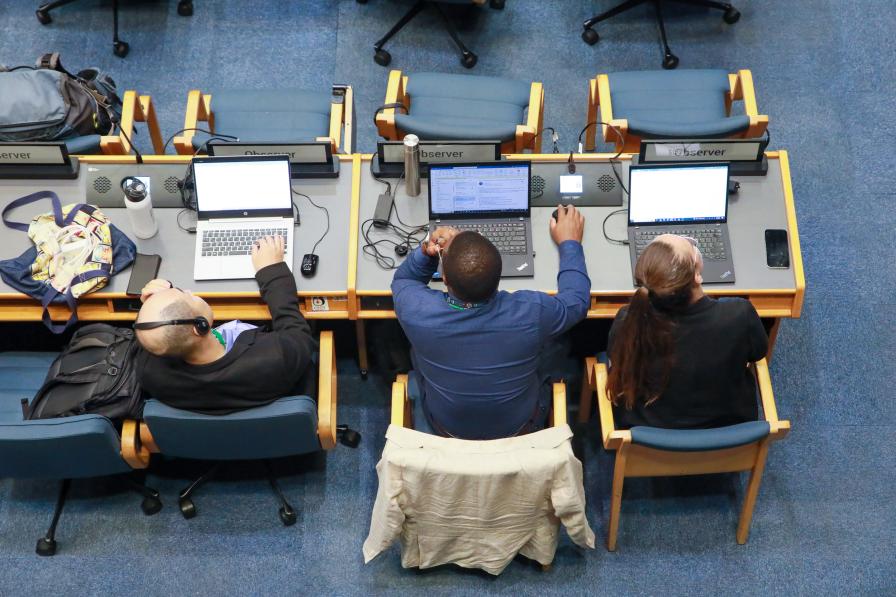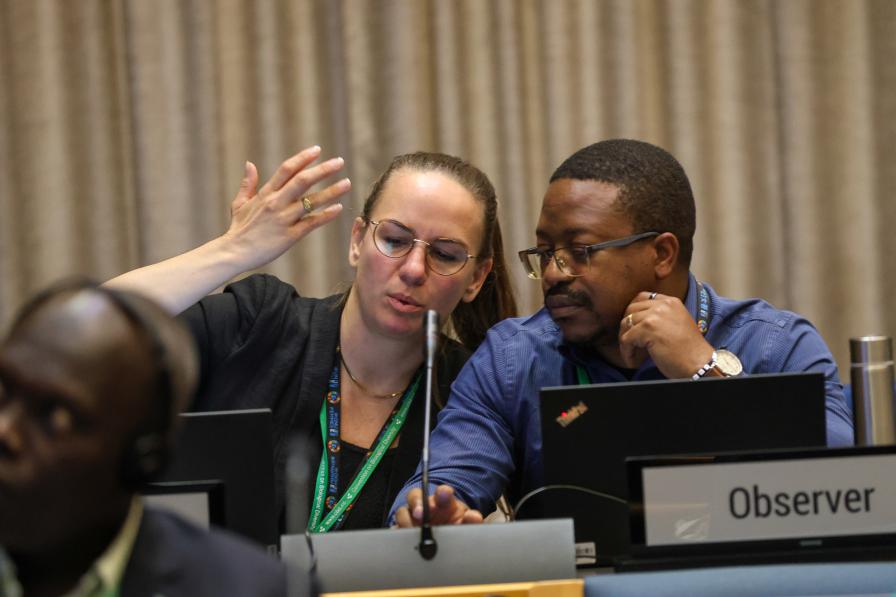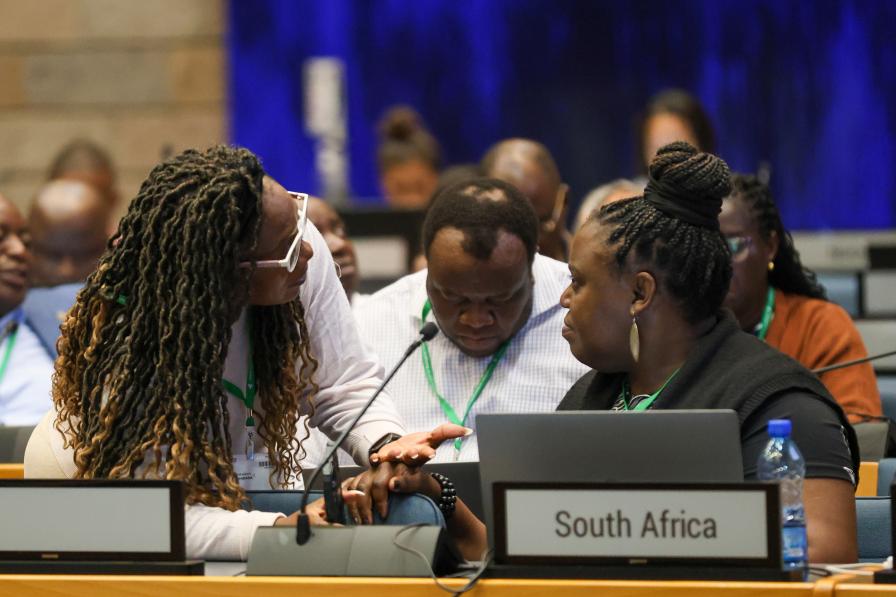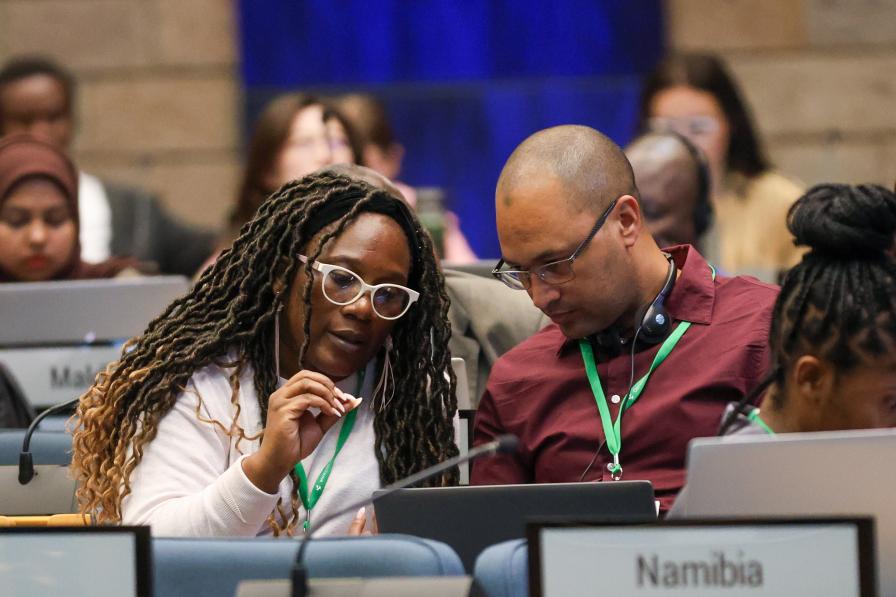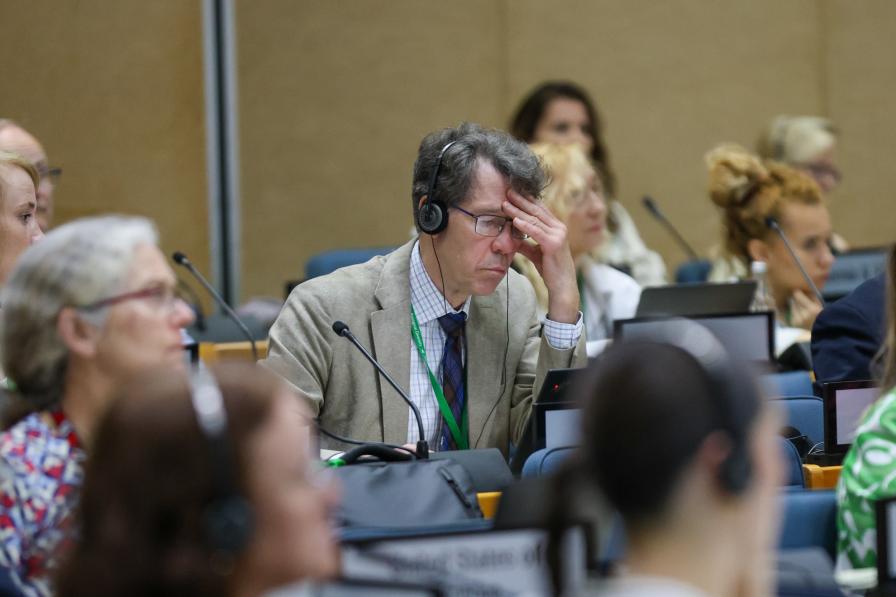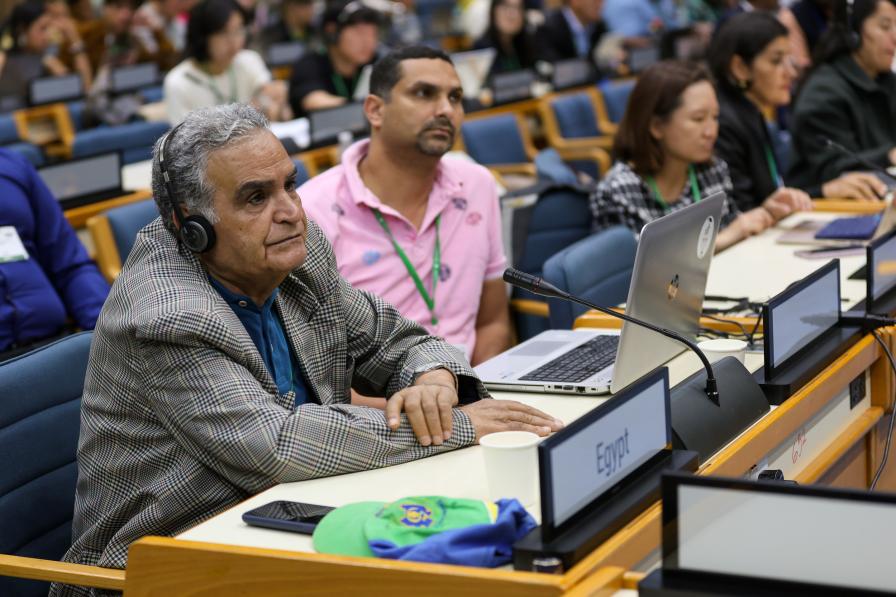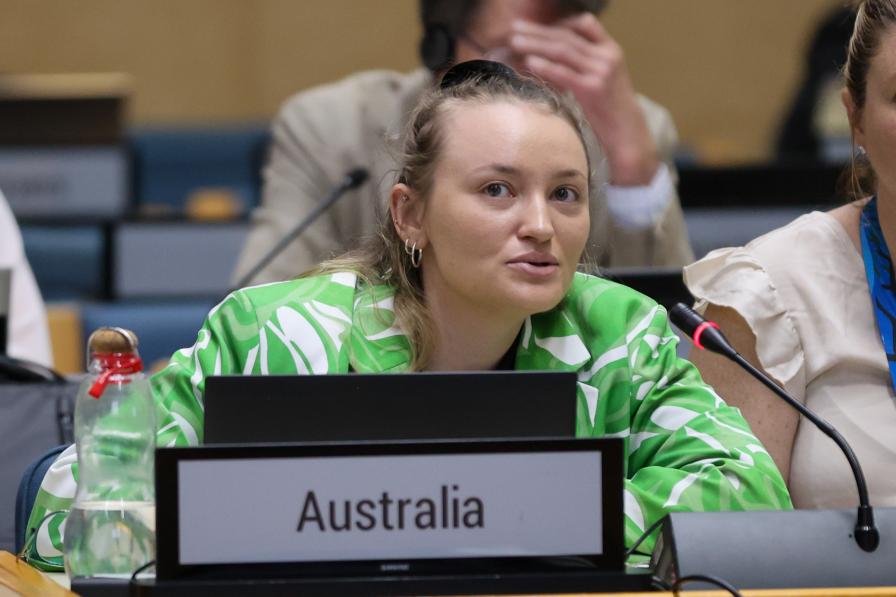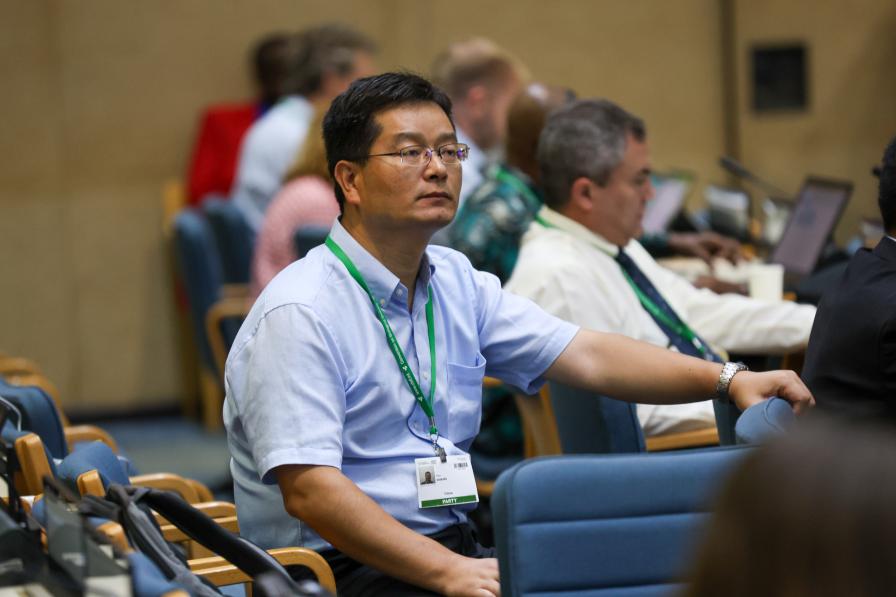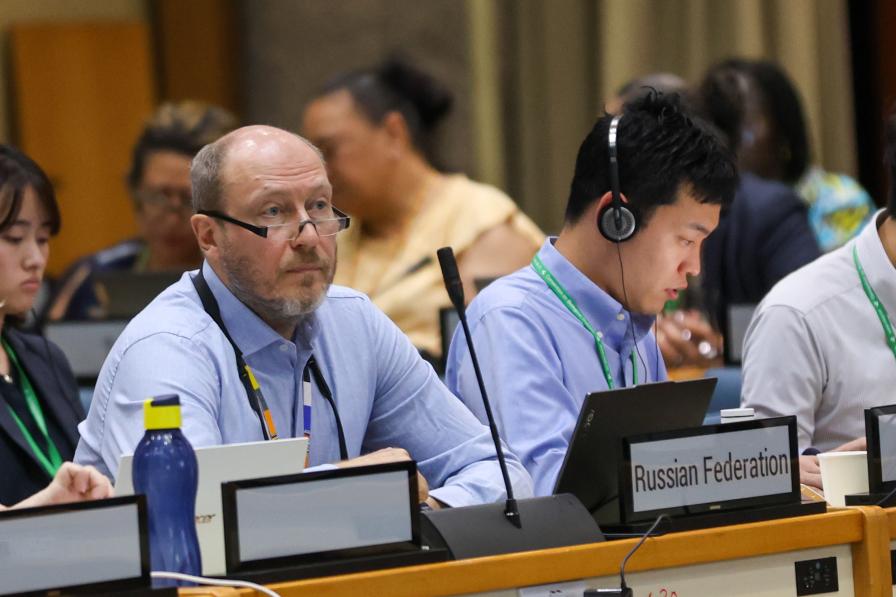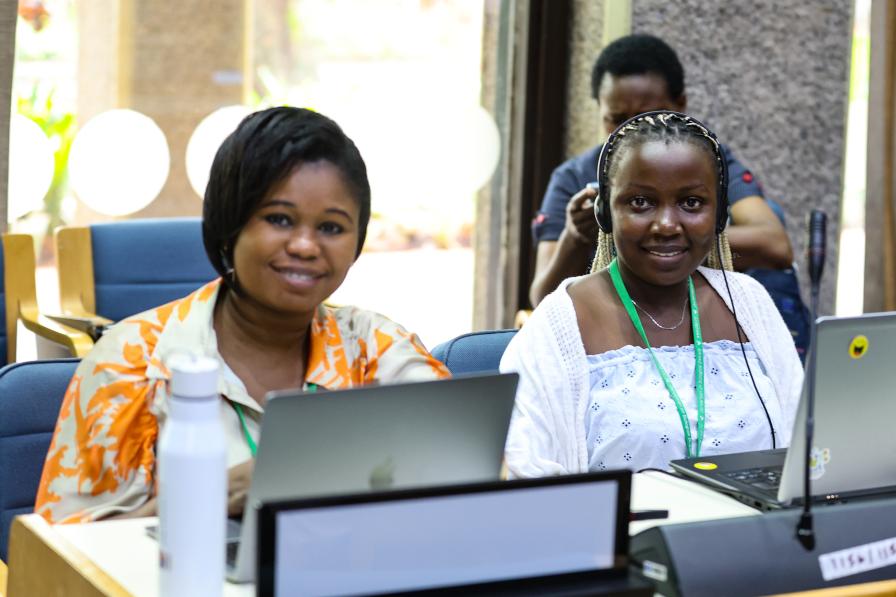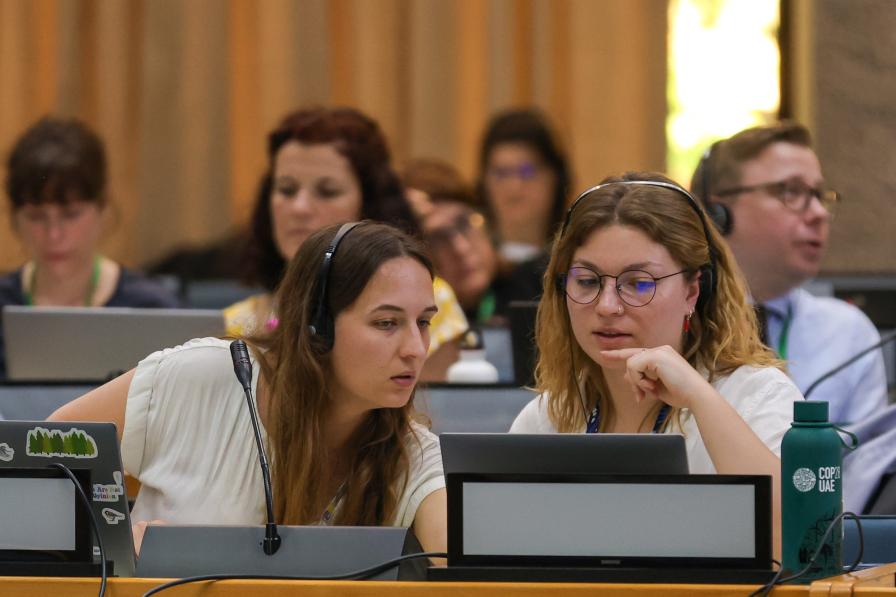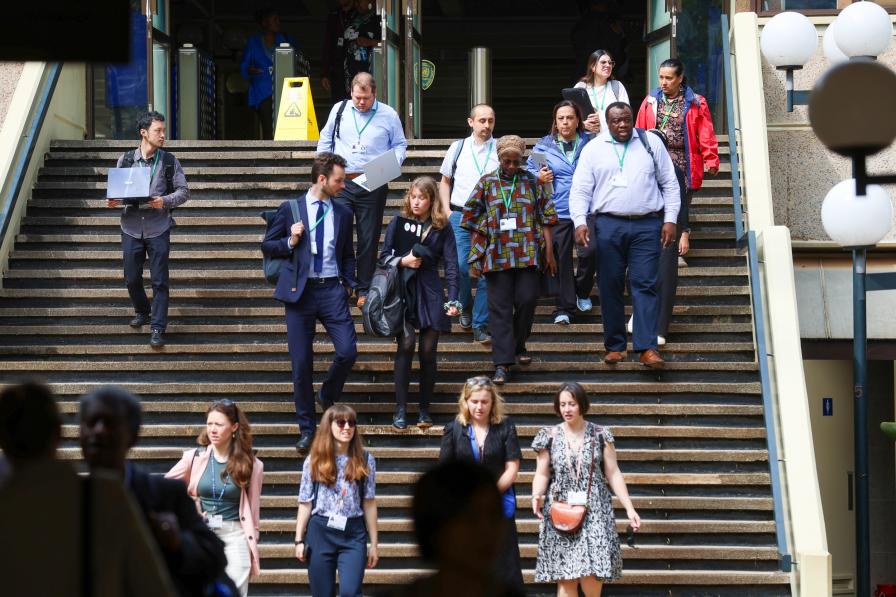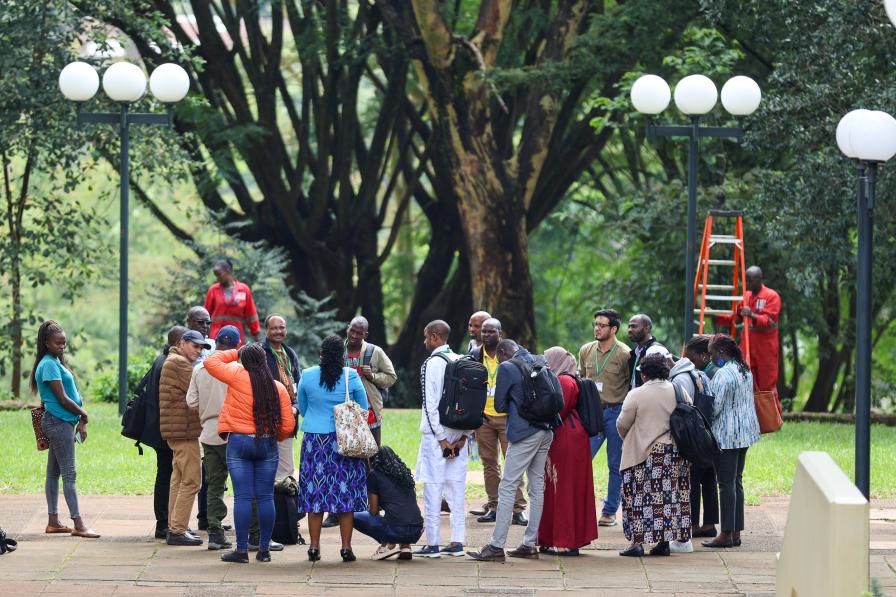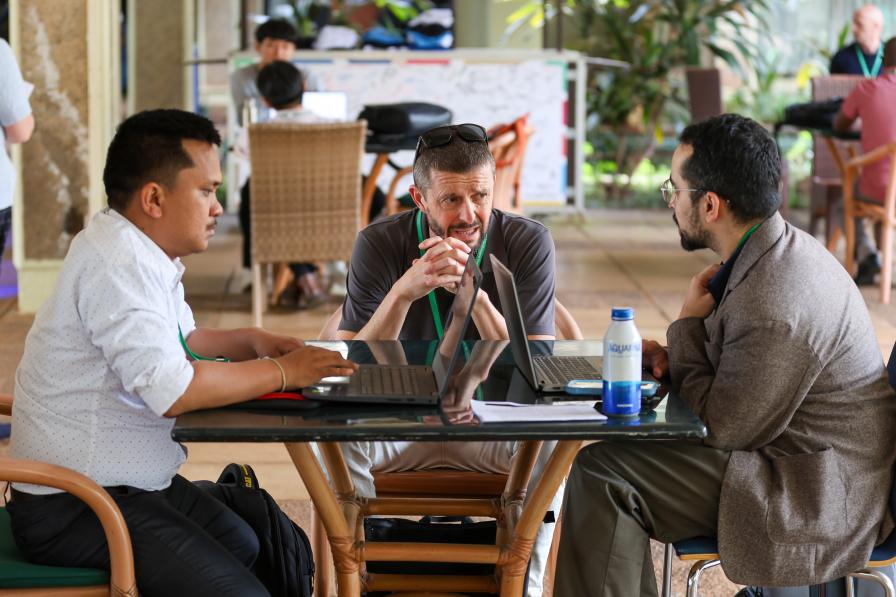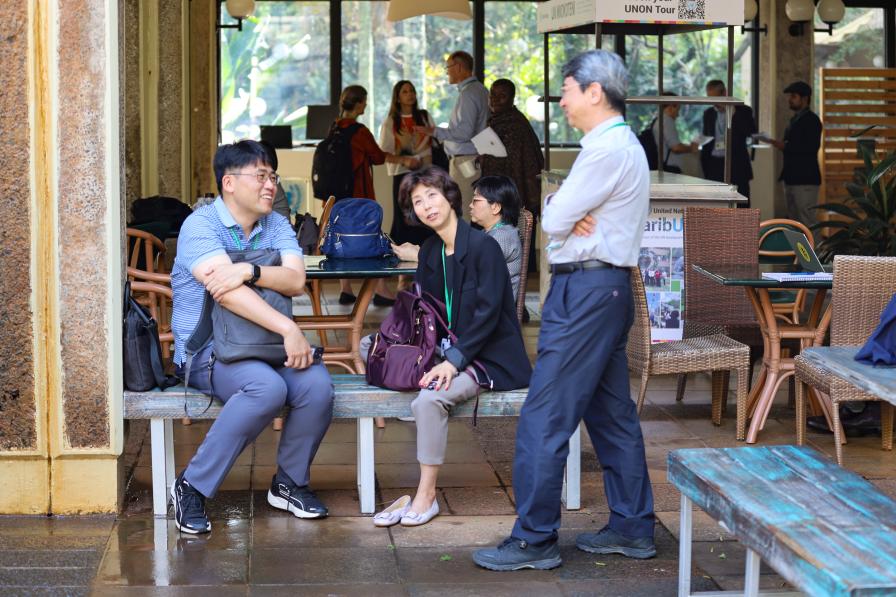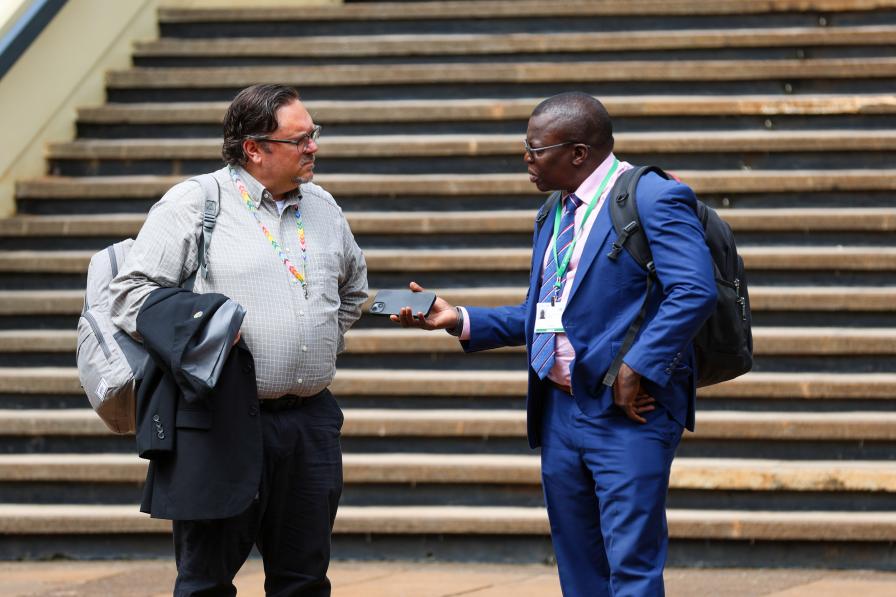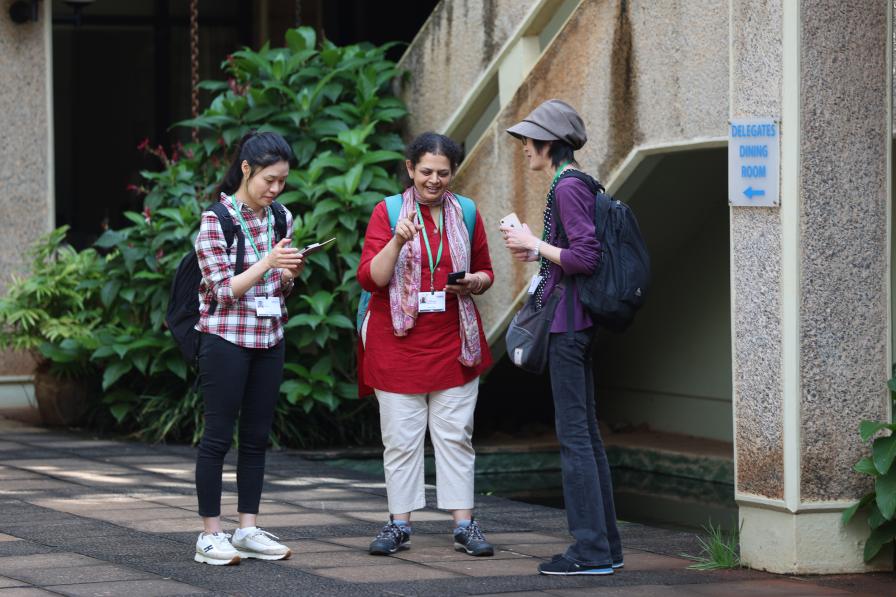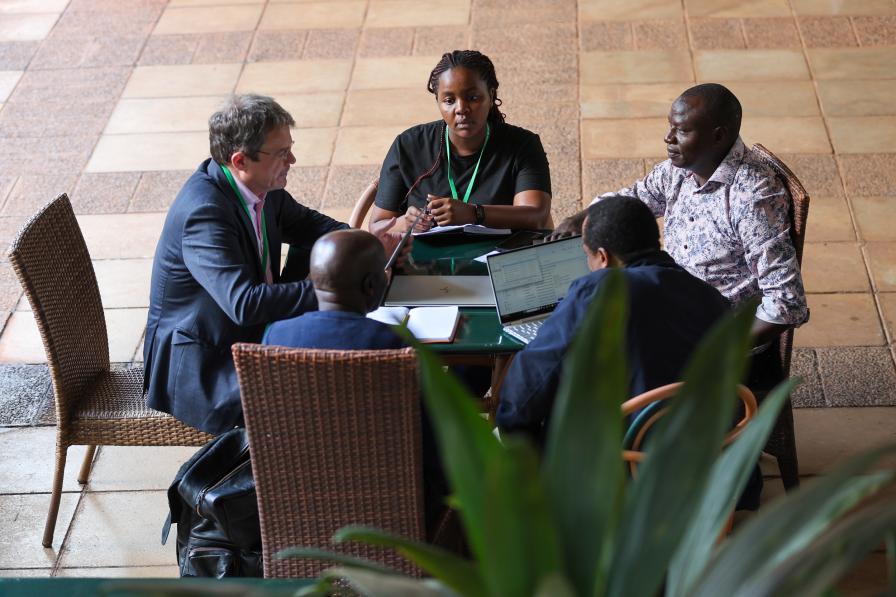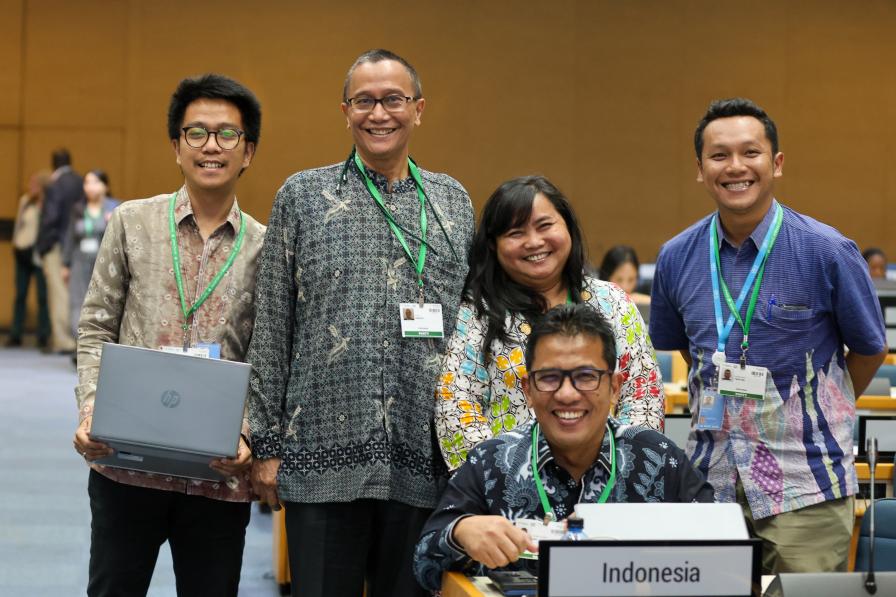Entering the final stretch of the 26th meeting of the Subsidiary Body on Scientific, Technical and Technological Advice (SBSTTA 26), delegates intensified their efforts during the meeting’s penultimate day to develop a robust set of recommendations for the 16th meeting of the Conference of the Parties (COP 16). Despite working late into the night, most participants expressed concerns abour the pace of negotiations, highlighting the need for increased efficiency to successfully conclude the meeting.
Want to dig deeper into today's talks? Read the full Earth Negotiations Bulletin daily report.
In the morning, the contact groups on marine and coastal biodiversity, and on biodiversity and health continued their work, addressing non-papers developed by the respective co-chairs. Many participants noted progress on marine issues, further emphasizing that convergence was within sight on several additional proposals, but the little time left meant that near-complete items were “parked.”
The contact group on biodiversity and health, which was the last out of the starting gate, completed a first review of the draft global action plan, annexed to the non-paper, bracketing some of the more controversial issues. However, as time ran out, the group was unable to address the draft recommendation to the COP, leaving many delegates concerned about what this would mean for plenary’s consideration of the conference room paper (CRP), on Saturday.
Delegates then held two plenary sessions, in the afternoon and evening, addressing and eventually approving CRPs on: matters related to the Intergovernmental Science-Policy Platform on Biodiversity and Ecosystem Services (IPBES); scientific and technical needs to support the implementation of the Kunming-Montreal Global Biodiversity Framework (GBF); and the detection and identification of living modified organisms (LMOs).
On a list of topics for requests by the Secretariat for IPBES assessments, delegates decided to include the topic “biodiversity and pollution,” deleting references to chemicals and waste. Following lengthy debate, they further agreed to include the topic of “rights-based approaches, including issues related to gender, to the conservation and sustainable use of biodiversity, and the fair and equitable sharing of the benefits arising from the utilization of genetic resources.”
On the scientific and technical needs to support GBF implementation, delegates agreed to forward three information documents to COP 16 for further consideration, clarifying that parties had different views on these documents and they were not considered by SBSTTA. They further agreed on the relevance of existing guidance under the Convention and on the availability of other available tools and guidance that can support the implementation of the GBF, further highlighting the need for adequate financial resources, capacity building and development, and technical and scientific cooperation.
On new work under the Convention, delegates decided to delete a topic on equity and the human rights-based approach relating to biodiversity, with a delegate noting that other fora are better equipped to address it. They also decided to specify that a topic on further work on sustainable biodiversity-based activities, products, and services should target those “that enhance biodiversity.”
A smaller number of delegates addressed the CRP on LMOs, as several delegations left the room to resolve major issues under the scientific and technical needs for implementing the GBF. Parties deliberated on preambular text, agreeing to recognize specific challenges that detection and identification pose to developing countries. Consensus could not be reached on: references to “unauthorized” LMOs; text recognizing the limited information available on the use of new techniques; and requests to the Secretariat to encourage technology developers to share detection and identification methods on the Biosafety Clearing-House (BCH), and to explore the possibility to link and cross-reference the BCH with relevant industry databases. These provisions remain in brackets for COP 16 to address.
Following a warmly-welcomed report of compromise reached on the contentious elements under the CRP on the scientific and technical needs for implementing the GBF, SBSSTA Chair Senka Barudanović (Bosnia and Herzegovina) adjourned the meeting — with weary delegates rushing for some much-needed rest, ahead of what most predict to be a long and demanding final day.
To receive free coverage of global environmental events delivered to your inbox, subscribe to the ENB Update newsletter.
All ENB photos are free to use with attribution. For CBD SBSTTA 26 and SBI 4, please use: Photo by IISD/ENB Mike Muzurakis.

